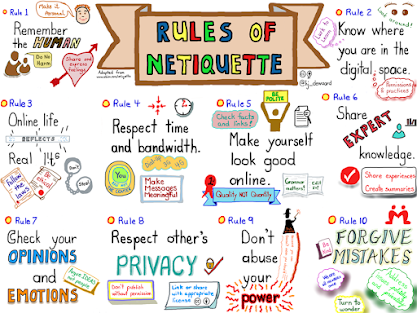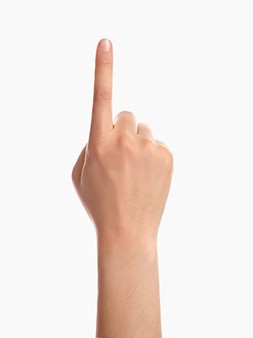Make Yourself Look Good Online (Week 7)
In
real life, we - people follow some ethical codes in order to respect someone
and in return get the same kind of treatment from them. This term is called
etiquette and it comes from the word “étiquette” which means ticket in French.
Now when referring to cyberspace, this term itself changes into netiquette and
includes some main rules that are worth to be followed. Initially, it is
presumed that netiquette was used in Palo Alto Research Center in between the 70s
and 80s
Make yourself look good
online
[source:
https://www.pinterest.com/pin/218354281917321230/]
What
do we mean by saying “make yourself look good online”? It implies that your behaviors and comments
in the online world are supposed to be valid. By valid I mean the quality of
the written statements. For example, people on the Internet are mostly
anonymous to others and it means that no one can really know their gender, skin
color, age, and so on. This leads to the fact that the essential way of making
yourself look good is by having quality writing. People will pay attention to
your style and content. In order to stay out of such moments, it is important
to fix spelling and grammar mistakes, to be comprehensive of what you are
discussing, and being pleasant and polite during such occurrences
Conclusion
In conclusion, it may be well understood that netiquette is a vital part of the online world and by following its rules we can stay out of further troubles on the Internet.
References
|
[1] |
J. Ford, "When
was netiquette created?," AnswersToAll, [Online]. Available:
https://answerstoall.com/users-questions/when-was-netiquette-created/#When_was_netiquette_created.
[Accessed 14 February 2022]. |
|
[2] |
"Core Rules of
Netiquette," [Online]. Available: https://coursedesign.colostate.edu/obj/corerulesnet.html.
[Accessed 14 February 2022]. |



Comments
Post a Comment